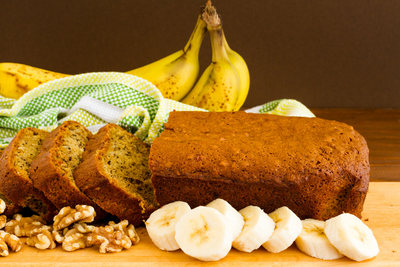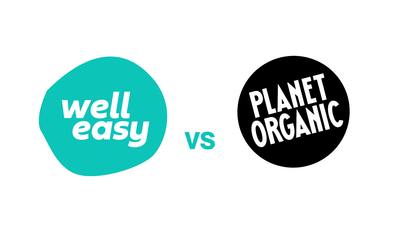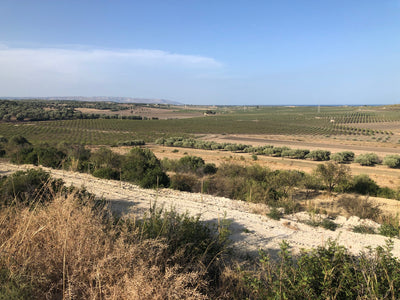Earth Day: Guide To Living More Sustainably
Earth Day: Guide To Living More Sustainably
Earth Day: Guide To Living More Sustainably
Sustainability – it's a big movement, and rightly so. But how do we live sustainably on a daily basis? Sustainability has many parts, from travel and energy to fast fashion, zero-waste, organic, and more. In this piece, we're focusing on three areas where we can all make small changes that make big differences: overconsumption, food waste and the next generation. Let's dive in.
Overconsumption: be picky about what and how you consume
When we talk about consumption, it doesn't just mean what we eat and drink; it includes every product we buy and every resource we use. This comes at a cost, both financially and environmentally - the simple fact being that the more we consume, the more we negatively impact the planet. Why? Because everything we buy or use must be produced, packaged, and shipped, resulting in carbon emissions, depleting resources, and often lots of plastic packaging.
So, let's just stop shopping – if only it was that simple. Unfortunately, global consumption supports global economies and going cold turkey would cause chaos. We can, however, shift habits, driving new, more sustainable economies in the process. Here's how:
- The 'mend' mentality – can you fix a broken product before buying new? Learn a new skill and mend it yourself or support people who can do it for you
- Recycle and/or up-cycle – can you make something else with your purchase? Support the movement of reusing products and resources, in turn reducing production and landfill
- Second-hand doesn't mean second best – most products are built to last much longer than we need them, so pass them. Children's toys, books, clothes, cars – the list is endless.
And, what about when you do have to buy – we believe in the motto of 'buy less but buy better'. Find a local alternative that isn't shipped across the world. Look for plastic-free packaging. Ensure products don't contain palm oil and are ethically and organically produced. These considerations make a massive difference, supporting sustainable supply chains with positive long-term implications.
Reducing our food wastage
Roughly one-third of the annual global food produced for human consumption - approximately 1.3 billion tonnes - gets lost or wasted. That's a chunky fact to swallow. Nevertheless, it's one we all need to be aware of. Wasted food means wasted resources – water, land, energy, and labour – creating unnecessary emissions in the process. Some of this loss is in production and transportation, but a large portion happens under our noses at home. Here are a few small changes we can all make to minimise food waste:
- Embrace your inner organiser – keeping waste down is all about organisation. Check your cupboards before you head to the shops and use lists to keep your trolley on track. Of course, we all throw in the odd extra; just make sure you have a plan for how to use everything you buy
- Batch cook like a champ – batch cooking is a great way to keep healthy habits and reduce wastage. Buy what you need to make loads of meals at once, then freeze and defrost as required
- Love leftovers – lunches don't have to be boring. Reheat last night's feast and enjoy it for another sitting. Plan to cook meals that can be doubled easily and work for a second day. This saves money, time, and waste!
- Chill out – we're back on the organisation theme again, but this one's important. Make sure your fridge and freezer are at the right temperature. Too warm and food spoils quicker. Fridges should be below 5∞C and freezers set to -18∞C. Anything above this won't keep food as fresh for as long, risking a premature trip to the bin
- Become a compost convert – when we must throw fruit or vegetables away, have a compost bin handy. Home composting creates free nutritious soil for a garden or window box so you can grow your own. It also limits organic matter in landfill, which produces greenhouse gasses as it breaks down.
Education can start from day one with the products and ideas we expose youngsters to. Little ones learn from adults' actions, so opting for eco-friendly alternatives helps them become mindful from an early age. It's the next generation that faces the challenge of maintaining and furthering our progress in sustainability, so here are a few tips for raising the next era of eco-warriors:
- Seek out sustainable alternatives – biodegradable wipes, reusable nappies, organic food – find conscious brands that protect people and planet to see both thrive
- Become part of the 'pass on' movement – Children grow fast, they barely have time to wear or use clothes to their full extent. If your little one has outgrown garments, don't throw them away - share with friends and family until their totally worn out
- Wood over plastic – The toy aisle is plastic overload. If possible, find more sustainable alternatives such as wooden toys or ensure you pass plastic toys on, much like clothing, to avoid clogging landfill
- Learn by example – Children watch their family and learn the ropes of life from them. If you are making efforts to live more sustainably, that will filter down into the next generation.









